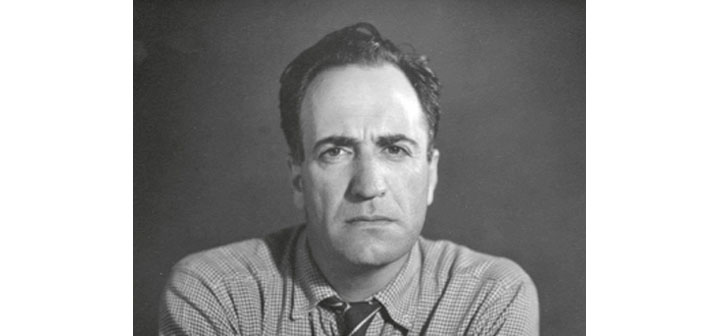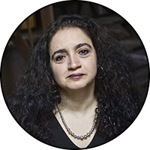Yetim ruhların acı tatlı hikâyeleri


Öyle kitaplar vardır ki, yeniden basılmaları, insana ne zamandır görüşemediği çok sevdiği biriyle karşılaşmış duygusu verir. Ünlü ABDli Ermeni yazar William Saroyan’ın en çok bilinen ve beğenilen öykülerinin yer aldığı ‘Aram Derler Adıma’ adlı kitabının yeni baskısının bende uyandırdığı duygu tam da bu; kavuşma sevinci. Sosi Dolanoğlu’nun editörlüğünde, İrma Dolanoğlu Çimen ve Ohannes Kılıçdağı tarafından yapılan yeni Türkçe çevirisiyle karşımıza çıkan ‘Aram Derler Adıma’, Aras Yayıncılık’ın Saroyan dizisindeki yerini aldı.
İlk kez 1940 yılında yayımlanan ve Saroyan’ın dünya çapında tanınmasını sağlayan ‘Aram Derler Adıma’, bir dönem Varlık Yayınları’ndan yapılan çevirisiyle Türkiye’de de bilinip sevilmiş, sonraları o baskı bulunmaz olmuştu. Oysa Saroyan’ın naif dünyasına olan ihtiyacın geçen zamanla azaldığı yok. Aksine, hayat hızlanıp hoyratlaştıkça, daha çok sığınası geliyor insanın onun öykülerine. Zira, burada hayatın ritmi daha yavaş, küçük ayrıntıların halen önemi var. O ayrıntılar ki aslında hayatın özünü barındırır, insan ruhunun anahtarıdır.
Eski hasret, yeni anlatım
Saroyan, ‘Aram Derler Adıma’da, kitabın başkarakteri dokuz yaşındaki Aram Karaoğlanyan eşliğinde kendi çocukluk yıllarına, her birini ayrı bir tip olarak tanıtıp sevdirdiği çılgın aile üyelerine, okul arkadaşlarına, komşulara, tanıdıklara, kısaca ABD’nin kayıp ruhlu göçmenlerine götürüyor bizi. İtalyan, Portekizli, İspanyol, Ermeni, Çinli, Yahudi göçmenlerle dolu Los Angeles’ta Aram’ın hiç görmediği ama genetik haritasında taşıdığı ‘eski memleket’i, Anadolu’yu bir çocuğun hiçbir şeyi gözden kaçırmayan o keskin belleğine nasıl kazıdığına tanıklık ediyoruz. Saroyan’ın yalın dili; ‘Saroyanesque’ diye anılan sade, konuşma diline yakın, sinematografik, coşkun anlatımı, öykülerde bahsi geçen herkesi ve her yeri tanıyormuşuz hissi yaratıyor bizde. Çünkü Saroyan bildiğimiz, klasik anlamındaki öykünün yapısını da alt üst ederek, onu serbest çağrışımla özgürce hareket eden, anıları bugüne getiren, zamanı genleştiren ve bütün bunları yaparken okurla gizi bir sohbet yürütüyormuş sıcaklığından taviz vermeyen bir esnekliğe kavuşturuyor.
Memleket zengini yersiz yurtsuz
Fakir, göçmen bir çocuğun çevresindeki bütün bu köksüz insanların hüznünü nasıl emdiğini, bir yandan da muzip edasından zerre taviz vermeden, bir türlü uyum sağlayamadığı okul hayatında öğretmen ve müdür iktidarına nasıl direndiğini görmek, okura, yazarın insan doğasına ilişkin anlayışını soluma imkânı veriyor. Bu dünyada kimler yok ki... Delişmen hareketleri ve kocaman ruhuyla bir film kahramanını andıran Hosrov Dayı, çöl toprağında nar ağacı yetiştirmeye kalkan, bir yandan da en işe yaramaz öğütleri vermekten geri durmayan Melik Amca, ailedeki deli damarın vârisi olarak bilinen kuzeni Murad, masum, kibar ifadesiyle yaptığı bütün haylazlıkların bedelini Aram’a ödeten diğer kuzen Arak... Saroyan herkesi, Aram’ın gözünden sonsuz ömürler boyu ölümsüzleştiriyor.
William Saroyan, kimi ya da hangi olayı anlatırsa anlatsın baskın gelen duygu, memleket hasreti. Üstelik bu, artık yazarının kendi hayatında da çok iyi bildiği, kaybedilmiş bir memleketin hasreti. Bitlisli Ermeni bir ailenin çocuğu olarak ailecek göç ettikleri Fresno’da dünyaya gelen Saroyan için Bitlis, hayalindeki kayıp vatandı. Nihayet kendini hazır hissedip 1964’te Anadolu’yu ziyaret ettiğinde, şehrin o günkü gerçekliği ile kendi hayalindeki Ermeni köyü birbirine karıştı. İlk kez o an, hayalinin tekabül ettiği bir gerçek olmadığını gördü. Uzun yıllar sonra ‘Bitlis’ adlı oyununda neden eski evini satın alıp oralara yerleşmediğini şöyle anlatacaktı: “Şehirde hiç Ermeni yok, ben burada sadece tuhaf bir yerli olurum. Otuz yıllık başarısının sonucunda yeteri kadar para kazanan Amerikalı Ermeni bir yazar, Bitlis’e gelerek ailesinin evlerini yeniden inşa ettirmeye karar veriyor. Büyükannesinin kardeşlerinin (kuzenlerinin değil) evini zengin Kürt işadamından alarak, daktilosuyla bu eve yerleşiyor. Tepelerde uzun yürüyüşlere çıkıyor ve artık orada yaşıyor. Delirmiş bir Ermeni...”
Bitlis-Fresno-Yerevan üçgeninde kendisi içim bir aidiyet arayan memleket zengini bir yersiz yurtsuzun, Hosrov Dayı’nın karşısına geçip saatlerce tek kelime konuşmadan oturan bağrı yanık Arap göçmen Halil’i iliğinde hissetmesinden ve kısa film lezzetinde anlatmasından daha doğal ne olabilir? Şöyle der Aram’ın annesi, şaşkın oğluna: “Ağızlarını hiç açmıyorlar, yine de devamlı konuşuyorlar. Birbirlerini anlıyorlar, bunun için ağızlarını açmaya ihtiyaçları yok, çünkü saklayacak bir şeyleri yok.”
Saklanmayacak şeylerin suskun diline tercüman olan Saroyan, cesareti olan herkesi ruhunun sırlarıyla yüzleşmeye çağırıyor usulca. Edebiyatın hakkını hayata teslim ederek...



